|
User
Reviews 8
Approval 89%
Soundoffs 88
News Articles 10
Band Edits + Tags 98
Album Edits 185
Album Ratings 138
Objectivity 75%
Last Active 01-14-21 11:58 am
Joined 11-25-12
Review Comments 17,270
| Classical!!
Once dismissed by unanimous vote of one (me) as a boring, pseudo-intellectual-oriented genre for joyless slobs, it turns this genre of music is pretty good. In fact, through out this last year it has become one of my biggest obsessions! So for this reason, I wanted to give some light for it as it's perhaps the most ignored genre on this entire friggin' site, much more so than Jazz. Unlike my lists for that though, this list is far oriented towards beginners. It'll be largely centered around composers rather than specific pieces by them (because most composers were versatile and just talking about one piece doesn't do them justice, also it's too much work), with small blurbs for each giving a simplified explanation of what they achieved and what you can expect from them. For the big 3 that everyone knows (Mozart, Beethoven, Bach), I included 3 works - The rest get 2. I tried to go in chronological order in order for you to understand how composers evolve each other's innovations across generations, fucked up a couple of times but oh well. There were a few important people I left of, but I couldn't really come up with much of anything interesting to say about them so I had to leave some out, sorry about that. I tried not to use too many obscure terms to not confuse people but I probably failed. In any case, check these fuckers out. | | 1 | 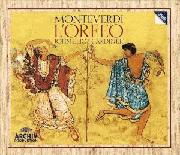 | Claudio Monteverdi
L'Orfeo
Monteverdi is one of the pillars of the modern understanding of music, with vital explorations of harmony and polyphony while also serving as one of the pioneers of opera ('L'Orfeo is the oldest opera still performed regularly, and is considered the first pure work within the genre which took it out of its experimental development and into what we know of it today). John Eliot Gardiner (a world renowned interpreter of baroque and renaissance music) once claimed that Monteverdi was the person who discovered how to give the human emotion a voice, and indeed, even his large scale works (Which is a lot of them) have a delicate beauty and sense of intimacy that is hard to match even today. | | 2 | 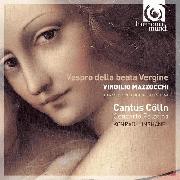 | Claudio Monteverdi
Vespro della Beata Vergine | | 3 | 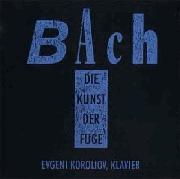 | Evgeni Koroliov
Die Kunst Der Fuge
We're getting to the big leagues now! Bach is in the house. Perhaps the most beloved composer of them all, the ultimate "your favorite composer's favorite composer", Bach is maybe the most vital of all composers in the modern age because despite not creating any new forms, his development and understanding of more or less all existing ones (excluding Opera, as he never made one despite being quite popular during his time) was peerless, pushing every single technique to its absolute limit and using instruments in extremely creatives ways (Violins are played like keyboards). Bach's music is far reaching and goes from the biggest and most ambitious works of religious music known to man to extremely secular, personal works made for either his own amusement or that of one of his numerous patrons, and remains a powerful influence in both art music as well pop music today. You can't hate 'em, unless you just happen to hate perfection. | | 4 |  | Pierre Hantai
Variations Goldberg BWV 988 | | 5 | 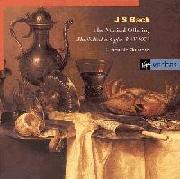 | Johann Sebastian Bach
The Musical Offering, BWV 1079 | | 6 | 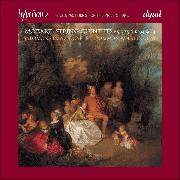 | Wolfgang Amadeus Mozart
String Quintet No. 4 in G minor, K. 516
If we were to take three most obvious composers of all time (Bach, Mozart, and then the third we'll talk about in a moment), Mozart would be the most mechanical of them all - A musical prodigy who could basically do everything, he was, like Bach, is considered to have perfected the style of his era, a follow up to baroque called 'Style galant' which removed the dead-seriousness and grandeur of baroque for something more harmonically simple while still elegant and charming (Though Mozart did bring some of Bach's style into his music). Mozart was pretty much the man of melodies, making wonderful melodies out of everything, and was important in helping shape the way musicians in this day and age develop it. Mozart's main appeal is his irresistible charm more than his complexity, making his music ideal for people who simply wish to enjoy music, with little conceptual flair. | | 7 |  | Wolfgang Amadeus Mozart
Requiem in D minor, K. 626 | | 8 | 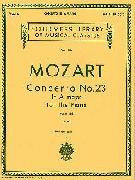 | Wolfgang Amadeus Mozart
Piano Concerto No. 23 in A major, K. 488 | | 9 |  | Joseph Haydn
String Quartets, Op.76
Not as obvious as the previous two, but really just as important if you're talking art music - Haydn's developments were extremely important to the development of symphony and is even considered the father of the string quartet. Haydn's music was known for its humor (frequently adding random shrieks and doing false endings all the time during his symphonies), and his impressive ability to create large structural works out of every simple motifs. As mentioned before, he is known for his development within the symphony and chamber genre, but his masterpiece is generally considered to be his oratorio 'The Creation', showing his versatility. | | 10 | 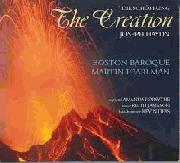 | Joseph Haydn
Die Schopfung (The Creation) | | 11 | 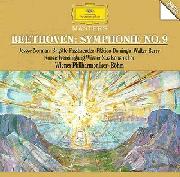 | Ludwig van Beethoven
Symphony No. 9 in D minor, Op. 125
The most famous composer of all time. In many ways Beethoven was the original idea of the tormented artist: abused from childhood, incapable of finding love (frequently because he wasn't of noble birth), and the cherry on top, he even died cursing and shaking his fist at the sky while a thunder passed. But no matter what, the music in his head never stopped. Perhaps the best starting option for people with rock backgrounds, Beethoven music was many things but most of all, his music was powerful - Not just in its emotional resonance, but Beethoven took art music to its absolute extreme. Whereas some people would add deafening stings for humor, Beethoven did it seriously and frequently, and would look for ways to always surprise people and drive them to maddening emotional heights, be it by joy or even anger (and he was a grumpy fella). Thunderous, spine-tingling sections are common occurrences in his music, and he was vital in the development of contemporary art music for it. | | 12 | 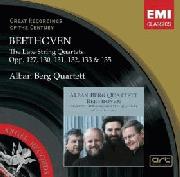 | Alban Berg Quartett
Beethoven: The Late String Quartets | | 13 | 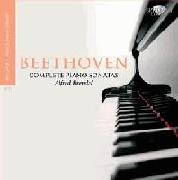 | Ludwig van Beethoven
Complete Piano Sonatas | | 14 | 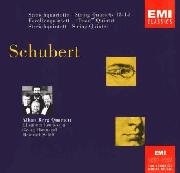 | Alban Berg Quartett
Schubert: Quartets 13-15; Trout Quintet; Quintet
Beethoven is considered to be the origin spark of the so called 'Romanticism' movement (a style that focused on personal emotion rather than universal), and Schubert could be considered the first person to come from the seeds he planted. Schubert was best known during his life time for his lieder (songs of piano + voice), but is today known for his innovative usage of modulation (shifting the keys/tone of a piece in medias res), unusual instrumentation (D. 821), and shifting the focus of Beethoven's drama from harmonic/structural development to something more melodic (directly inspired by Mozart). He was essentially a love child between Beethoven and Mozart - What's not to love? | | 15 | 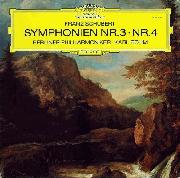 | Franz Schubert
"Tragic" Symphony No. 4 in C minor, D. 417 | | 16 |  | Franz Liszt
Concerto for Piano and Orchestra No. 2 in A major
Had 20 fingers in his hands, just that 10 of them were invisible. The greatest pianist ever, pretty much - He helped popularize the modern understanding of the concerto (A work in which a solo instrument, the piano in this case, is supported by an orchestra or concert band), and created some exceptionally exquisite fireworks displays on piano. More of a showman than a craftman, but nonetheless an important figure in history. | | 17 | 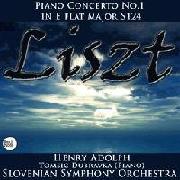 | Franz Liszt
Piano Concerto No. 1 in E-flat Major, S. 124 | | 18 | 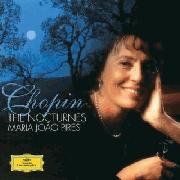 | Frederic Chopin
Nocturnes
Yes, of course, the 'poet of the piano' - Basically shat out solo piano pieces as part of his regular early morning bowel movement. Like Liszt, he was known for his showmanship, but is comparatively much more renowned for his actual compositions. He was known to heavily integrate folk influences within his melodies and harmonic structures, and would often write piano lines as if they were to be sung. He made the piano's popularity as a solo instrument soar - The piano essentially becoming the de facto instrument for classical music can be attributed to him. He endowed pieces meant for dances with a greater sense of expression and melody and is often believed that works such as the Nocturnes, uniquely atmospheric and ethereal for their time, represent the earliest example of 'impressionism', though this is heavily debated. | | 19 | 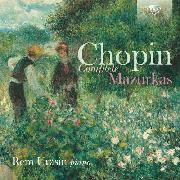 | Frederic Chopin
Mazurkas, Op.33 | | 20 | 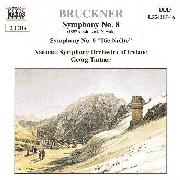 | Anton Bruckner
Symphony No. 8 in C minor
Primarily known as a symphonist, he was very heavily derided during much of his life for his development within this genre, with his music dismissed as senseless and just over-the-top - He sought to take the dissonant elements of symphonies, particularly those of guys like Beethoven, to new heights of intensity, scope, experimental modulation, and polyphonic depth. To this day his symphonies remain incredibly intense and, dare I say (with a shake of my wrist and a grit of my teeth), epic experiences, filled with vital innovations - So vital that even being posthumously associated with Nazi Germany did not hurt his reputation, which is crazy considering how much it hurt Wagner's for a while. | | 21 |  | Anton Bruckner
Symphony No. 9 in D minor | | 22 |  | Johannes Brahms
Cello Sonata No. 2 in F, Op. 99
Sometimes grouped with Beethoven and Bach was one of the 'Three B's' of classical, Brahms could be somewhat defined as middle between those two with sprinkles of everything heard up until then - He maintained the romantic aesthetic of his peers, but brought back a sense of what was heard during the classical period (Mozart, Haydn, Bach's sons, early Beethoven etc), and especially brought from baroque music but mostly that of Bach, while also incorporating elements of the Italian renaissance sound and, especially, elements of gypsy folk which influenced his heavy use of rubato (basically jumping around with the tempo) and irregular rhythms, which are said to have been an important print for Igor Stravinsky's rhythmic developments in the following century. Also composed a shit ton of choral music. | | 23 | 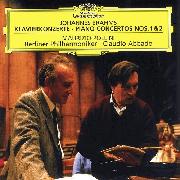 | Johannes Brahms
Piano Concerto No. 1 in D minor, Op. 15 | | 24 | 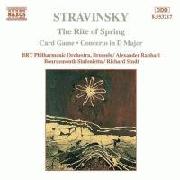 | Igor Stravinsky
Le Sacre du Printemps
And speaking of Stravinsky! Our friend Igor here made some extremely important developments when it came to rhythmic developments - He was among the first composers to frequently utilize silence with the purpose of aiding the rhythms of his pieces, but probably most importantly was the way he would lay down regular rhythms before juxtaposing or outright mutating them into irregular, lopsided and highly unusual rhythms. This, coupled with his knack for using large scale groups of instruments (a lot of which were unusual), resulted in a lot of very well known and properly apocalyptic ritual-like dances. While classical music has a history of causing some ruckus, Stravinsky's premiere of 'The Rite of Spring' is probably the best known example, notoriously causing a riot as the audience just could not handle the rhythmic, crescendo-heavy intensity of his music. | | 25 | 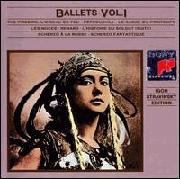 | Igor Stravinsky
L'Oiseau de feu "The Firebird" | | 26 | 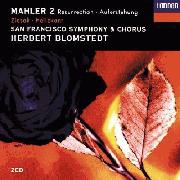 | Gustav Mahler
Symphony No. 2 in C minor, "Resurrection"
Hands down, the best symphony writer in this whole list. Like many around this time, Mahler took influences from folk tunes, and had a decidedly emotional, expressive style. Influenced by his tutor Bruckner whom he firmly defended during his lifetime, Mahler took the scale of the symphony to unheard of heights, creating panoramic landscapes that seemed to just constantly expand - Mahler did, at one point, claim that symphonies should be like 'The world. They should everything', so this might give you an idea of just how massive his works really are. If it doesn't, then maybe the fact that he frequently required dozens of musicians to even vaguely achieve his intended effect, with his 8th symphony requiring so many fucking musicians that it's been dubbed the 'Symphony of the Thousand'. | | 27 |  | Gustav Mahler
Symphony No. 8 in E Flat Major | | 28 |  | Claude Debussy
Etudes, L. 136
Debussy is, perhaps, the last composer to have significantly influenced the landscape of music in a way that also had significant effect on popular music, being championed by many early Jazz musicians like Duke Ellington. More or less the pack leader of the so called 'Impressionism' movement within the music (Though he himself did not like this label), Debussy used, fittingly, tones that resembled impressionistic paintings, downplayed rhythmic and harmonic elements in favor of delicate percussion and subtle polyphony, and strong chromatic elements. The result are works that are barely tangible in how soft they are, depicting imagery that is vivid enough to contrast its ethereal-ness. Look at an average impressionist painting, and if you can turn that into music, that's pretty much exactly what it sounds like - It was way more fitting than grumpy ol' Debussy would've told you! | | 29 |  | Claude Debussy
Images pour orchestre, L. 122 | | 30 |  | Arnold Schoenberg
Arnold Schoenberg 2: Streichquartette I-IV
Uh-Oh, now we're really in trouble. The inventor of the so-called '12 tone' system, also more or less interchangeably known as 'Serialism', a method which discards tonality. By far the most polarizing invention within 20th century art music, this is the point where classical music and popular music were divided to a point of (probably) no return. Essentially, the 12th tone was a method in which the notes within the chromatic scale are all given equal weight (ie pieces without keys, meaning atonal), so each new harmonic development is written based on the previous ones rather than a single constant (tone rows). The result is music that's raggety, without steady motifs, deformed and often grotesque in its dissonance, which requires a lot of attention to have any idea what goes on Highly cerebral. But with Schoenberg, it wasn't all math - He also followed through with the romantic methods of the likes of Brahms, and made some beautiful odd music thanks to it. | | 31 |  | Arnold Schoenberg
Verklärte Nacht, Op. 4 | | 32 | 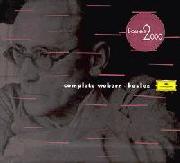 | Anton Webern
Complete Webern
While having detractors (who all eventually came to use it anyway), Schoenberg's technique didn't take long to find suitable heirs. Webern, alongside Alban Berg and their teacher Schoenberg, was one of the three most important developers of the serial technique, but whereas Schoenberg would maintain a balance between the romantic tendencies and the disfigured atonality he created, Webern represented the peak of the technique's twisted isolation - While his early music was very romantic (And indeed, even later on his music would be highly emotional at least to him), Webern's technique swiftly evolved into a severe reprehension of it to its fullest potential, exploring schematic organization of pitches, timbre and register (etc), his usage of fugal writing, and extremely abstract conventions created some exceptionally jagged tiny-cacophonies (much of it was quite short, barely reaching a minute) that dazzle more by the fact that they even exist despite seemingly signifying nothing. | | 33 | 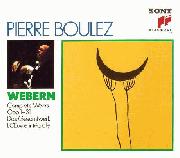 | Pierre Boulez
Anton Webern: Complete Works Opp 1-31
(This is basically the same thing as the one above except it only has his works with opus numbers where as the above has everything he did (i think). I'm putting this here however because I like how this recording sounds much more, but the above one is probably better for beginners) | | 34 | 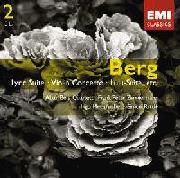 | Alban Berg
Lyric Suite
The least known of the 3, the most old fashioned of them all, Alban Berg is probably the most accessible of all of them. Some claim that he was the one who found the "human value" within Schoenberg's invention - That is to say, out of all three, he was by far the most romantic, and the only one who really stayed within that frame (Though he was also the one to die first by a significant margin, so he didn't have much of a chance to do otherwise). Berg openly evoked tonality without actually being tonal, in a way that allowed him to quote other composers and maintain a less abstract frame to his works. Much of his idioms came directly from romanticism, Bach, and of course folk tunes. | | 35 | 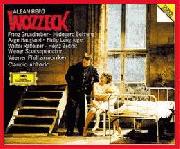 | Alban Berg
Wozzeck | | 36 | 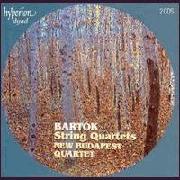 | Bela Bartok
String Quartet No. 4 in C major, Sz. 91
So while Schoenberg and his disciples were running amok, shaking the entire world of music to its core, there were who while openly supporting their ideas, they didn't quite make the leap, instead choosing to retain a tonal framework but still using harmonic, pitch, timbres (etc) ideas elaborated within the Second Viennese School. One of them was Bartók, probably the greatest Hungarian composer of all time. Bartók, instead of aiding the breakdown of tonality, instead sought to find new ways of creating and framing tonality - He even specifically mentioned that he wanted to show Shoenberg that he could use twelve-tone and still remain tonal. One of the ways he did so was heavily amping up the folk influences - It's not the only thing, but I don't have enough space to go into detail on more. | | 37 |  | Bela Bartok
Mikrokosmos Sz. 107, BB 105 | | 38 | 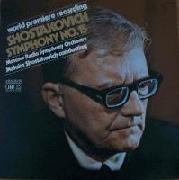 | Dmitri Shostakovich
Symphony No.15 in A major, Op.141
Another sire who sought tonality while hand holding atonality with Mr. Shostakovich. While I could talk about his ingenious usage of tone rows within tonal frameworks (etc), all you really need to know about him is that most of his music, heavily centered around death and with a political edge about the injustices going on with the soviets around the time, is extremely dark - Filled with despair and frightening intensity not entirely for its dissonance (Though that helps), but thanks to its emotional punch. The 8th string quartet is probably the best introduction to classical I could ever think of to give to a metalhead. | | 39 |  | Dmitri Shostakovich
String Quartet No. 8 in C Minor, Op. 110 | | 40 | 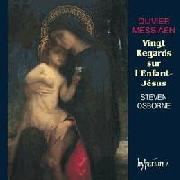 | Olivier Messiaen
Vingt Regards sur l'Enfant Jesus
Messiaen took the folk influences found within classical music and took them to their logical conclusion - He traveled frequently and his music found itself largely outside of the realms of traditional western music, being inspired by decidedly un-western music like bird song and gamelan, and incorporating exotic rhythms and mode transportation (among other things) for his scales, making it impossible for traditional western cadence to be applied in his music. He also brought forth the usage of atonality within religious frameworks, novel at the time. | | 41 | 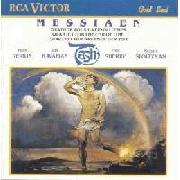 | Olivier Messiaen
Quatuor pour la fin du temps, I/22 | | 42 | 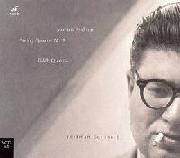 | Morton Feldman
String Quartet No. 2
In a world post-John Cage (who I had written a description for but Sputnik is retarded), Feldman was also important in the development of indeterminacy, though he did so utilizing more decidedly musical frameworks. He developed a very particular sound which stayed with him pretty much the entire latter run of his career - Soft rhythms that seemed to float, never bump; wavering usage of pitches, and very slow moving and evolving music that seems to depict vast landscapes of not much, but still strangely beautiful in a very non-emotional way (he completely discarded emotion within his works). | | 43 | 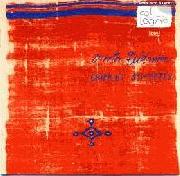 | Morton Feldman
Crippled Symmetry | | 44 | 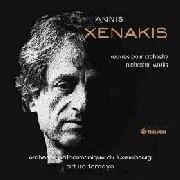 | Iannis Xenakis
Œuvres pour orchestre
THE composer that kicked me into this classical loving phase - First time I heard 'Tetras', ass kicked so hard my hips turned completely and my ass is where my dick should be. Xenakis was a pioneer in the usage of math and electronic writing of music (things like stochastic processes and game theory were common among his writing styles), and gave them an abstract architectural style. The results were fiercely cacophonic and dissonant, screechingly intense soundtracks to the post-industrial world. | | 45 | 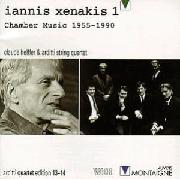 | Iannis Xenakis
1: Chamber Music 1955-1990 | |
Gwyn.
09.14.17 | Oy what where the fuck are my descriptions
thank christ I wrote most of them down elsewhere before posting
This was going to be longer but I got tired so have this for now maybe I'll make something else later on | Frippertronics
09.14.17 | nice | Archelirion
09.14.17 | 39 is classic, especially that second movement
Haven't checked the vast majority of what's on here though - Schoenberg sounds fascinating | Papa Universe
09.14.17 | I recommend Bedrich Smetana's Vltava. You won't regret it. | Archelirion
09.14.17 | Just listened to Vltava, and wow, I'm seconding that comment. Beautiful piece, builds up really nicely. | Papa Universe
09.14.17 | also Giuseppe Tartini - Devil's Trill Sonata | bgillesp
09.14.17 | Wow, this needs a feature | DoofusWainwright
09.14.17 | 'Classical!' tough sell | zakalwe
09.14.17 | Anyone read Steppenwolf? | Gwyn.
09.14.17 | 'Haven't checked the vast majority of what's on here though - Schoenberg sounds fascinating'
What sort of thing would you look for? If you want something more like 39, you should listen to Bartók's quartets, especially the fourth one. Generally I don't recommend Schoenberg for newbies, but if you're genuinely interest it won't hurt trying I suppose.
'where's my boy nono??'
maybe in another list when I don't get so fucking exhausted
'I recommend Bedrich Smetana's Vltava. You won't regret it.'
Why not, thanks for the recommendation | Ocean of Noise
09.14.17 | Nice list. Debussy, Schoenberg, Webern, Bartok and Messiaen are the best composers ever | Gwyn.
09.14.17 | all about Bach | manosg
09.14.17 | Wow, this needs a feature [2]
Awesome list, I'll make sure to check a few of these. | Papa Universe
09.14.17 | I guess it'll get a feature once he finishes up all the write-ups. | ButteryBiscuitBass
09.14.17 | Where the fuck is Tchaik 1, 4, 5 & 6?
Dvorak's New World Symphony bro. | Spacesh1p
09.14.17 | Awesome list and great timing, I'm starting to get into classical myself. | Gwyn.
09.14.17 | "Where the fuck is Tchaik 1, 4, 5 & 6? Dvorak's New World Symphony"
I don't know shit about Tchaikovsky unfortunately and I'm not familiar enough with Dvorak to say anything substancial but you right that symphony is pretty awesome! | ButteryBiscuitBass
09.14.17 | I saw Dvorak's New World @ the Royal Albert Hall in London last month =-)
Rectify that about Tchaikovsky ASAP, I promise you that at least one of the four I suggested will easily be in your top ten of all time.
| Egarran
09.14.17 | Tchaik, haha. As a librarian I can tell you those russian composers are a nightmare to catalogue, because they are spelled in at least seven different ways.
But yeah, good list needs him badly. | budgie
09.14.17 | the way you write has me picturing you as an awkward self-righteous creep who likes little girls | Gwyn.
09.14.17 | not that little, just 11 years old minimum | Frivolous
09.14.17 | shostakovich's 8th string quartet is amazing, this is true. great list man | DikkoZinner
09.14.17 | Nice. The Hungarian madman is the best | Egarran
09.14.17 | "awkward self-righteous creep"
Show us on the doll where the men touched you. | RogueNine
09.14.17 | Def hit up some Tchaikovsky if you haven't. | TheSpaceMan
09.14.17 | whoa cool | ShitsofRain
09.15.17 | im at jazz atm. see you in two years again gwyn | ShitsofRain
09.15.17 | *GoatUser | danielito19
09.15.17 | check charles ives! his Unquestioned Answer is a real thinker | butcherboy
09.15.17 | bookmarked.. list is quality | hal1ax
09.15.17 | nice list man
not a big fan of haydn at all but everything else on here is great | Toad
09.15.17 | doesn't modern classical have less to do with ambiance/drone and more to do with ordered silence? | hal1ax
09.15.17 | modern classical is pretty divergent in sound i think. like you have morton feldman and max richter sitting under the same umbrella | Toad
09.15.17 | @hal mmhmm, but then as a label, what divides post-rock from modern classical, to reiterate sach's question
EDIT: or my own at this point. idk | hal1ax
09.15.17 | mmmm so like the artists who utilize classical instrumentation but within a post-rock paradigm/structure? yea idk i think calling some of them modern classical can be a bit of a misnomer. i guess it depends on how loosely we are defining post-rock? cuz i'm not sure if i would call ludovico straight up post-rock... but i'm def not a post-rock expert so | Egarran
09.15.17 | Growing up with metal, I learned early to compare it to classical as a defense mechanism. | danielito19
09.15.17 | it's classical music if your professors say its classical. its not really a genre classification that makes sense in the first place | ShitsofRain
09.15.17 | i read steppenwolf. really heart-wrenching. great book. only the girl is so cliche, ugh | Gwyn.
09.16.17 | post-rock isn't really very definable in the first place
Talk Talk sound absolutely nothing like Gybe yet they're somehow in the same genre
| Papa Universe
09.17.17 | You can say that of any genre.
Gang of Four sound nothing like Interpol, yet they're both Post-Punk.
Candlemass sounds nothing like Ghost, yet they're both Doom (somehow). | Gwyn.
09.17.17 | That's because most (good) bands aren't easily defined within one category, a lot of them feature heavy influences from other sources and the genre they're most known is probably just a portion of their sound that happens to be the biggest one. Also there's different sub-categories for certain genres (Candlemass is called 'Traditional Doom Metal' instead of just straight doom, Ghost is not)
But Gybe and (later) Talk Talk are pretty much solely referred as post-rock as far as I've seen. I can see some similarities between Talk Talk and Sigur Ros but Gybe? All I really is that reliance on crescendos, which seems incredibly vague to me | Zig
09.17.17 | Great list, surprised to see Xenakis, one of my favorites.
Imo, only misses Edgard Varese, fantastic composer, pioneer of organized sound; and Krzysztof Penderecki, for his unique music texture. | Gwyn.
09.17.17 | It's missing quite a few great composers, I just decided to stick to the more influential ones since this is more a beginner's list | Sinternet
09.17.17 | im a big fan of moderrn classical and minimal pieces, so could use philip glass or einaudi, but solid list
penderecki is also a good shout, and my inner ghibli nerd recommends all of joe hisaishi's soundtracks | Sinternet
09.17.17 | ooh almost forgot masakatsu takagi too | Gwyn.
09.17.17 | Can't believe I made a beginner oriented list and forgot about Steve Reich | Egarran
09.17.17 | INEXCUSABLE
Never heard of him. | Zig
09.17.17 | And not to mention Terry Riley. | qwe3
09.17.17 | 6 is my fav beethoven symphony, and probs joint fav with symphony fantastique.
brahms, stravinsky and rachmaninoff are a few other favs. good list. y no schumann tho. seems like he would be up your alley tbh. you seem to dig romantic period
| Egarran
09.17.17 | Honourable mention to Carl Orff's O Fortuna from Carmina Burana - the most used classical piece in metal. | Gwyn.
09.18.17 | I completely forgot about schumann I guess I'll have to name one whenever I make another one of these | brainmelter
09.19.17 | list is fuego, | Gwyn.
09.19.17 | 🔥🔥🔥 | DrMaximus
09.19.17 | Amazing :3 | Faenrir
09.25.17 | This list needs Wagner, Tchaikovski, Offenbach, Strauss, Verdi, Vivaldi, Puccini, Mussorgsky and John Williams.
edit: oh yeah, Gounod, Bizet and Berlioz as well x) | Gwyn.
09.25.17 | Really not a big fan of operas much. | dbizzles
09.25.17 | I'm going to bookmark this for when I get in the mood for classical again.
Pyotr Tchaikovsky Piano Concerto No. 1 in B♭ Minor is my shit, but I'm pretty limited in my familiarity of the genre so that may be entry-level stuff, idk. | Gwyn.
09.25.17 | To get into classical the first thing you should probably do is drop that entry level bs and just dive in with whatever catches your interest
Generally speaking I always say Beethoven is the best entry point for anyone, I wouldn't know too much about specifics since I'm not too familiar with Tchaikovsky | dbizzles
09.25.17 | Well, check him out. He's dope. | Faenrir
09.26.17 | "Really not a big fan of operas much."
Not sure what you mean. Pretty sure it's because you're unfamiliar with them. | Gwyn.
09.26.17 | I mean that I'm really not a big of operas much. | Faenrir
09.27.17 | Why ? | Egarran
09.27.17 | Here are some reasons:
Mediocre music
Melodramatic plots
Amateurishly hammy acting
A forced and unpleasant singing style
| Faenrir
09.27.17 | Lulz. Mediocre music...gtfo. | Doctuses
05.07.18 | awesome list | Meridiu5
05.07.18 | Nice list. You should check out Cesar Antonovich Cui if you havent | solrage
04.10.19 | The description of Mozart is misleading at best, downright false at worst. If Mozart was nothing more than a tunesmith, a peddler of charming melodies, he would not be remembered as the genius he is. Not complex? Have you not heard the quintuple fugato that climaxes his 41st Symphony? Little conceptual flair? His late operas, concertos, and chamber music all disprove that.
Also no mention of Wagner, one of the titanic geniuses of the 19th century and the pivotal figure between romanticism and modernism. | sixdegrees
04.10.19 | didnt you hear dude
Wagner is officially canceled | 50iL
04.10.19 | This is amazing dude, well done. You're missing Ligeti big time though. Oh, and check Joep Franssens' Harmony of the Spheres. It's insane.
I'd also add Alfred Schnittke on here (cuz bae), Scriabin (bae), and Rachmaninoff is def missing. Tchaikovsky is also quality, but that has already been said. | Gwyn.
04.11.19 | I only had so much space and time but glad ppl here still get stuff out of my lists | Tyler.
04.12.19 | lol | 50iL
04.12.19 | Been jamming 45, amazing stuff! | Egarran
04.12.19 | BITCHBOSS is right. The inherent evil and fascism of classical music is an affront to the modern progressive man.
Only time has allowed society to forgive all the elitist crimes against humanity this music celebrates. | ThatGuyMikey
04.16.21 | Bloody brilliant list.
Gonna check some of these. |
|
